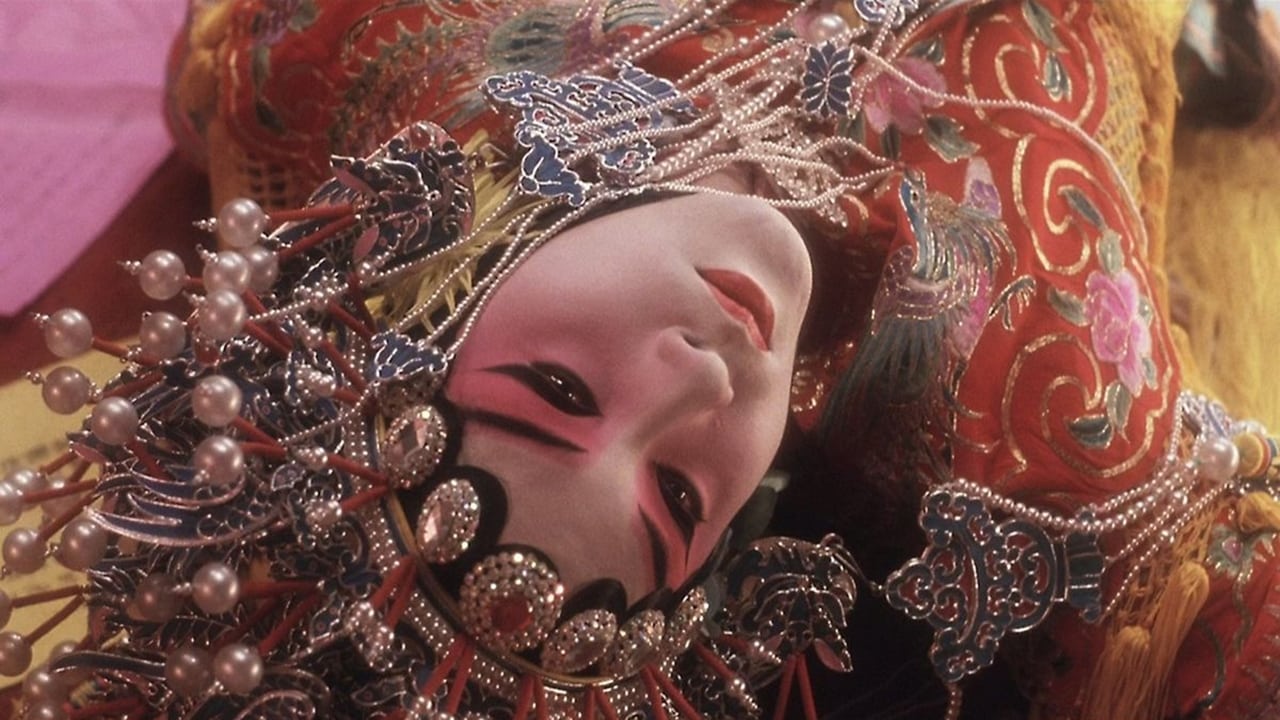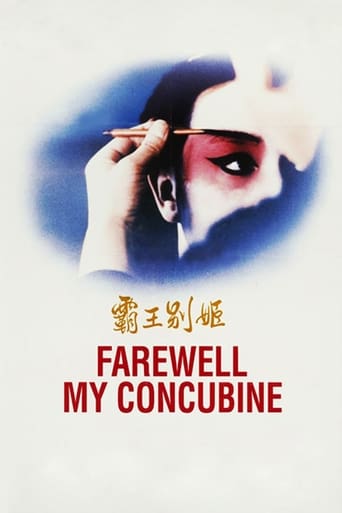

I grow up in mainland China, and this one is absolutely the best Chinese movie I've ever watched. Ba Wang Bie Ji is the kind of movie that you respect paramountly, but you could hardly be courageous enough to watch it again.( Like I've watched the trilogy of Batman dozens of times) What this movie interprets is too grave for anyone who's been through those historic tragedy to bear. I just couldn't continue to watch it when those tiny little kids were punished to death, when the terror that Japanese invasion brought engulfing the whole city, when the loving couples were forced to betray each other...After watching this movie, I felt an indescribable sorrow surrounding me. I will tell anyone asking me about this movie that it is definitely a great epic, but probably I'm not going to watch it anymore.
... View MoreThere is no doubt that this is a great movie. You could check out the awards it won. I just want to mention that the main hero of this movie is Leslie Cheung who is my favorite singer.One of his great song is When Love Fades Away(in Chinese Dang Ai Yi Cheng Wang Shi)that is the theme song of this movie. If you are interested in this song, you might as well give it a try. Well, it's a mandarin song, but as the saying goes" Music knows no boundary between countries".You might be impressed by the emotion it expresses. Besides, the following songs sung by Leslie are also great if you I want to know more.Silence is golden(Chen Mo Shi Jin)、In My Life Time(Jin Sheng Jin Shi)、Blamefully Beautiful(Guai Ni Guo Fen Mei Li)、The One Who Doesn't Want To Hold Me(Bu Xiang Yong Bao Wo De Ren)
... View MoreIn this movie based on Lilian Lee's masterpiece, Chen Kaige has mainly developed the evolution of the 'sentimental' link between two actors (one gay one) through the turbulent history of China in the 20th century, with the fall of the Empire, the Japanese occupation, the civil war, the communist victory and the Cultural Revolution. The Chinese opera "Farewell My Concubine" functions marvelously as a leitmotiv. The sentimental relationship between the two actors, and later with the lover of one of them played superbly by Gong Li, will be seriously shaken during the political earthquakes. Although 'everyone should be responsible for his own fate', everybody, if he isn't strong enough physically or psychologically, could be forced to betray his friend by false accusations, particularly during violent public interrogations. The political message of the film can be summarized by the slogan: 'Cursed are the tyrants who plunge their people into misery.'With unforgettable scenes, like the abandonment of a child by his mother, the rigorous training of the young aspirant-actors, the public political trials or the meeting of 'old friends', Chen Kaige translated perfectly in moving pictures (with sublime color grading) Lilian Lee's text.Nevertheless, Lilian Lee's book transcends all personal relationships with her sublime meditations on art, the artist, individual life, love, death and politics. One example from the book: in the ordinary world, victory and defeat, life or death are only during the time of a wink. But art and artists are not part of this world, where politics with its slogan 'kill or be killed' only sow pain, suffering and misery. Through art, the spectators escape during the spectacle for a few hours the harsh reality of life and enter into a world of dreams and deepest emotions, which are embodied in the actors (of Chinese operas). This movie is a must see for all lovers of world cinema.
... View MoreFarewell My Concubine is a glorious epic about two friends over the span of many decades. Together they go through the horrors of opera school as children in the 1920's, and then Opera stars during the Japanese invasion of China in the 30's, the Communist takeover in the 40's, and the Cultural Revolution of the 60's. Between them is the wife of one and a former prostitute, Juxian, played by Gong Li. The relationship among the three is often very complex, and goes through plenty of turmoil, but Dieyi and Xiaolou and the Beijing Opera somehow stay together.This movie to put it simply is beautiful, particularly during the opera scenes. It's one of the most pleasing movies just to look at that I have seen in some time. It's also beautifully told. With so much ambition it could have been way too complex for someone not familiar with the history to understand, but it's actually quite direct and flows fantastically from one section to another.The two acting leads do good jobs, but it's Gong Li that stands out. Her character evolves greatly at first from dislike of Dieyi to sympathy and even tenderness. In her marriage to Xialou she wants him to quit Opera, but eventually accepts it and sees it as a necessary part of his life. Gong Li is the main heart and soul of the film, and this is the best acting work I have seen from her.This certainly stands as one of the five best Chinese language films I have ever seen. It's not completely flawless, some of the earlier scenes I think are a bit heavy-handed, but overall this epic and tragic story for friendship and love is a must see.
... View More